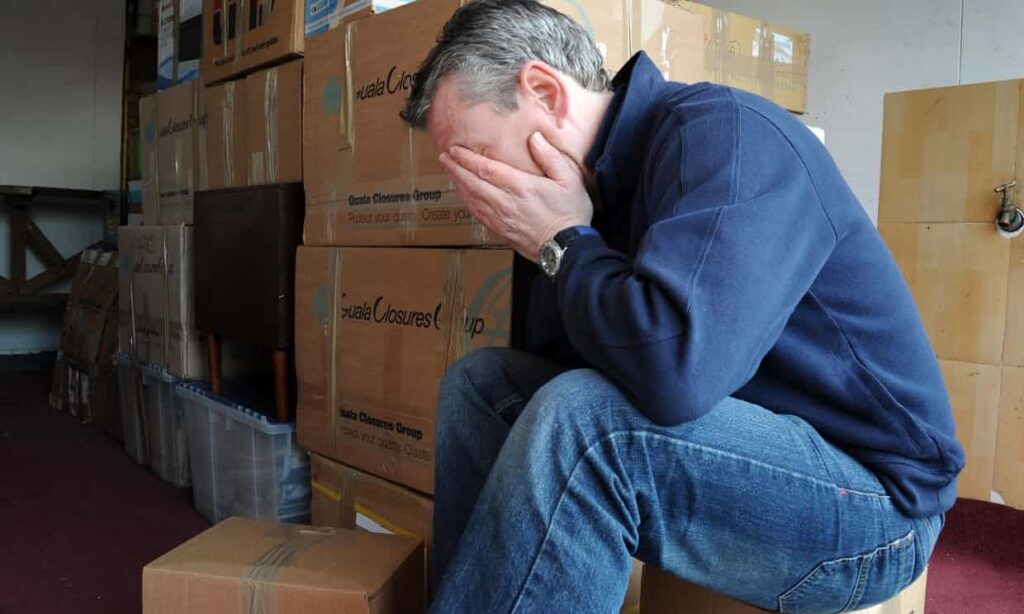Repossession of a mortgaged home happens in a number of stages. There’s action you can take at each stage to prevent it.
Get advice if you are facing repossession.
You may be able to get help from a legal aid funded service if you claim certain benefits or have a low income.

7 Steps to Home Repossession
There are rules and regulations the mortgage lender must adhere to. These are in accordance with your contract and if you fall behind with your mortgage repayments your lender should first contact you to discuss the arrears.
You should discuss the options with your lender and put a proposal to your lender about how to deal with the arrears.
If you are still unable to cover the arrears your lender should write to you again. They should warn you that they’ll start court action to repossess your home if you don’t respond or if they’re unhappy with your response.
You can negotiate with your lender at this stage.
Your mortgage lender must get a court order to repossess your home.
To get this, the mortgage lender has to make an application to the local county court setting out reasons why a judge should give them possession of your home.
The court fixes a date for a court hearing where a judge decides if you can keep your home or if your mortgage lender should get possession.
The court will send you a copy of the lender’s claim form with:
- the time and date of the court hearing
- the reasons the lender wants to repossess your home
- a defence form for you to complete and return to the court
It is important to reply to the court using the Defence Form.
Get advice as soon as possible. An adviser may be able to help you prepare for the hearing, gather evidence and negotiate with the lender or lender’s solicitor.
A judge in a County Court makes decisions about repossession.
The judge reads and hears the evidence from you and your lender before making a decision.
The judge may:
- decide that your home should be repossessed – this means you can be evicted and your lender can sell the property to repay your mortgage debts
- make a suspended possession order – this allows you to stay in your home provided you keep to certain conditions
- adjourn the case – this means the case is postponed for a hearing at a later date to allow you and the lender to take certain steps before the case comes back to court
- dismiss the case against you
A possession order is granted if the court decides that your home should be repossessed.
The order will dictate the date of repossession. This is usually 28 days but the order could allow you up to 56 days. In addition to the outstanding debt, you may be ordered to pay court costs which could include the lenders legal costs.
A suspended possession order is granted if the court decides you should have another chance to keep your home.
A suspended possession order allows you to stay in your property however there will be terms agreed at the hearing. For example, that you pay your monthly instalments plus your mortgage arrears at a set amount.
Your lender can request the courts bailiffs remove you from your home if you:
-
haven’t left your home by the date on a court order for possession or
-
you are in breach of the terms set out in the suspended possession order
Your lender must apply to the court for a bailiff’s warrant. If the bailiffs don’t have a warrant, you cannot be removed from your home. The cost of the bailiff’s will usually be added to the outstanding debt.
The bailiffs write to tell you when they will come to repossess your home.
Get advice about staying until bailiffs remove you.
The lender will sell your home. As lenders are not in the property business the lenders will usually sell the property at a discounted value in order to recover their money back and as fast as they can.
After the cost of the outstanding mortgage, inclusive of arrears, penalties and the legal costs including the court fees there often is no equity remaining in the property.
Speak to us today to explore your options.